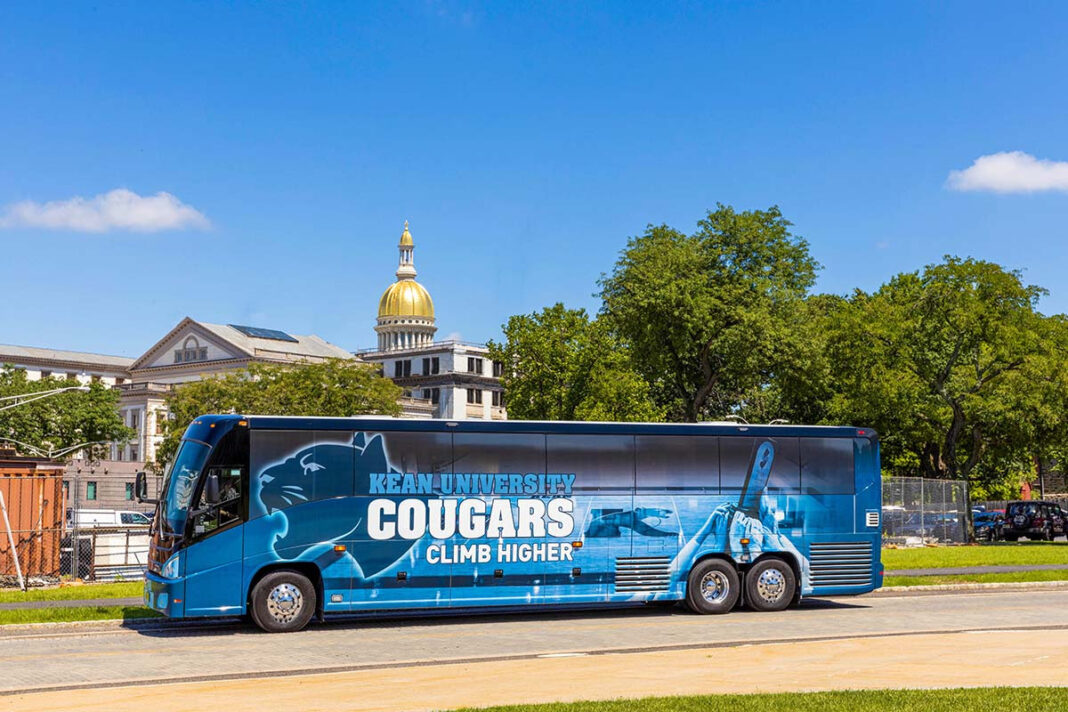
The John S. Watson Institute for Urban Policy and Research at Kean University recently brought together top leaders of the New Jersey Legislature, representatives from the legislature’s Black and Latino caucuses and members of the New Jersey Urban Mayors Association to lay the groundwork for creating a statewide urban policy agenda.
The Watson 2022 Virtual Policy Retreat, held Friday, February 4th, reflects Kean’s commitment to the state’s urban centers since being named New Jersey’s first urban research university late last year. It also marked the first time the Institute assembled elected leaders from these core constituencies to intentionally identify, analyze and prepare to act upon the policy priorities of all three groups.
Joseph Youngblood, II, Ph.D., J.D., senior vice president for transformational learning and external affairs at Kean, said the event marked a significant step forward for the University’s urban research initiatives.
“This historic convening is the first in a series of engagements designed to leverage Kean University’s wide-ranging policy and research capabilities to support the policy needs of urban legislators and mayors,” Youngblood said. “Our partnership with the legislative caucuses, urban mayors and urban communities enables the Institute to support policy formation and provide evidence, analysis and policy recommendations that help move all of our urban communities forward.”
The virtual retreat featured discussions on four principal policy areas: basic needs, including food and housing insecurity, homelessness and poverty; public safety and health, including violence as a public health crisis; education and positive youth development; and environment, including infrastructure, environmental justice, and economic and community development.
Barbara George Johnson, J.D., vice president of external affairs and urban policy at Kean and executive director of the Watson Institute, delivered an overview of the policy content that was to be discussed.
“New Jersey’s urban communities are overburdened and in crisis on a number of fronts, and only by working together, with a firm commitment to finding sustainable solutions to our challenges, can we bring about meaningful change,” Johnson said. “Kean University and the Watson Institute will work with leaders at all levels to improve the economies of our cities and the lives of the people living in our urban centers.”
Assemblywoman Shavonda E. Sumter ’96, chair of the Legislative Black Caucus, noted the policy retreat’s historic significance as it brought the legislative caucuses together with urban mayors to collectively discuss impactful policy issues.
“We are committed to continuing this dialogue and working together to create a policy framework that ensures marginalized communities’ issues are being addressed,” Sumter said. “We will document the policy focus areas we discussed at the retreat so that we are very precise in our efforts in Trenton, with action-oriented items that support the needs of our communities.”
Senator Nellie Pou, chair of the New Jersey Legislative Latino Caucus, said dialogue on critical issues creates the opportunity for collaboration in finding solutions.
“Though our groups share many common policy goals and often work together on various related issues, it was insightful and enjoyable to be able to come together and share ideas and thoughts about challenges, both economic and social, facing our communities and to set out some basic strategies for the best path forward in 2022,” Pou said.
New Jersey Senate Majority Leader M. Teresa Ruiz and General Assembly Speaker Craig J. Coughlin attended the policy retreat and pledged to work with the Black and Latino caucuses and urban mayors to obtain federal resources that will help meet the state’s needs, including funds from the federal infrastructure law.
“I appreciate Kean University’s Institute of Urban Policy and Research for providing me the opportunity to join with the Urban Mayors Association and fellow legislators from the Black and Latino caucuses for a thoughtful discussion on the challenges facing our state,” Ruiz said. “Being able to share ideas and talk about issues that impact all of us can lead to the development of great new policy initiatives and actionable items to improve the lives of residents around the state.”
Ruiz and Coughlin stressed the importance of working together to address a healthcare system that puts urban New Jerseyans, especially people of color, at a disadvantage; curb the uptick in urban gun violence; and reverse entrenched and long-standing policies that perpetuate substandard education in some urban municipalities.
“Maximizing the benefit of federal dollars and state resources requires continual collaboration across all levels of government to identify and prioritize community needs,” said Coughlin. “As we’re faced with the opportunity to create once-in-a-lifetime transformative change, it was my honor to join members of the Legislative Black and Latino caucuses and the Urban Mayors Association to share where the Assembly sees pronounced need. Housing and food security, mental health, access to childcare, the resilience of small business — these are foundational to the success and prosperity of New Jersey communities, especially our urban communities. Partnering together, I know we can make big strides.”
Newark Mayor Ras J. Baraka and Plainfield Mayor Adrian O. Mapp, the president and vice president of the New Jersey Urban Mayors Association, also attended the virtual session. Mapp called the meeting inspiring.
“As elected officials, we sometimes feel isolated in dealing with the day-to-day problems in our municipalities; having the opportunity to share and present ideas with others facing similar issues was not only productive on many levels but cathartic,” Mapp said. “I thank the John S. Watson Institute for Urban Policy and Research and Kean University under the leadership of President Lamont Repollet for facilitating such a historic first session and providing expert guidance throughout. I look forward to participating in more collaborative efforts such as this.”





